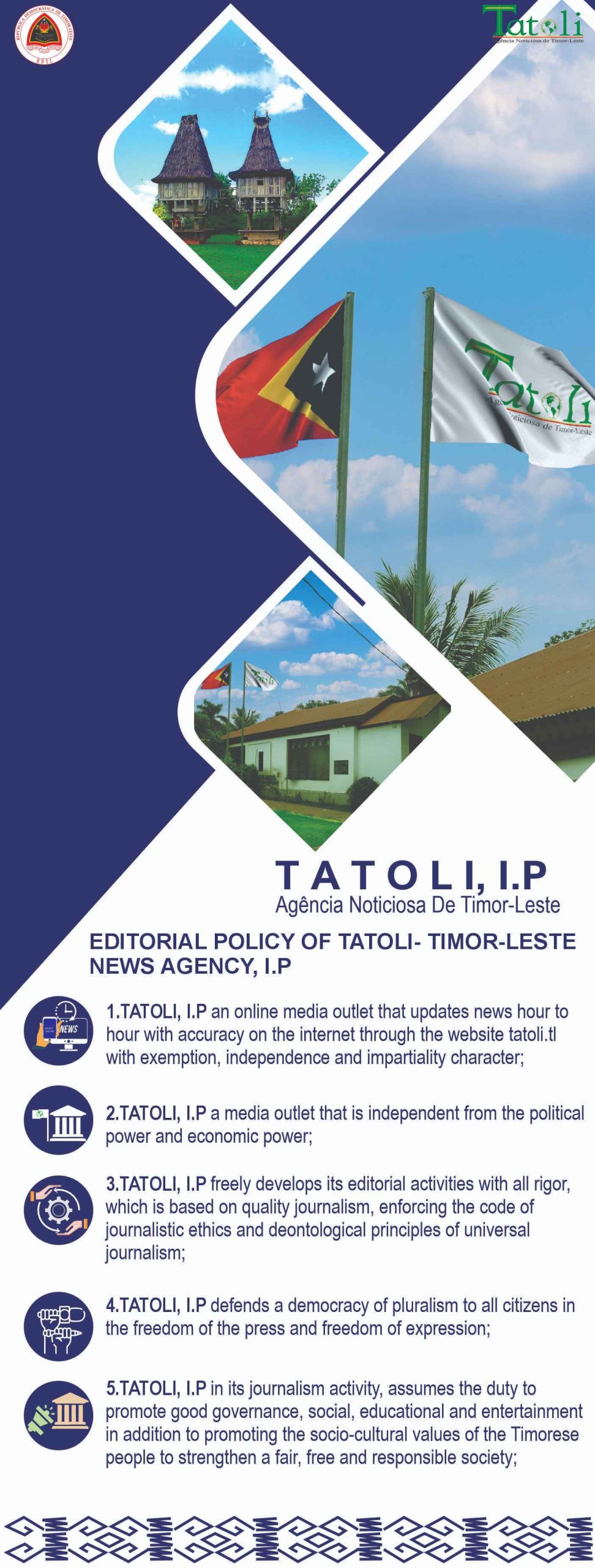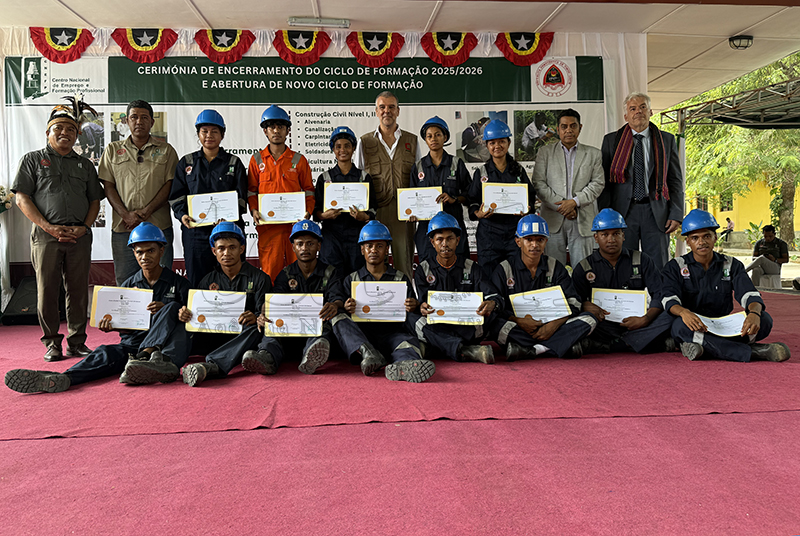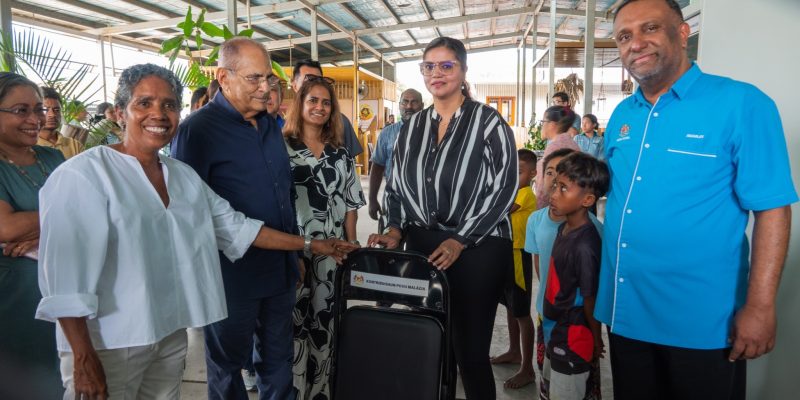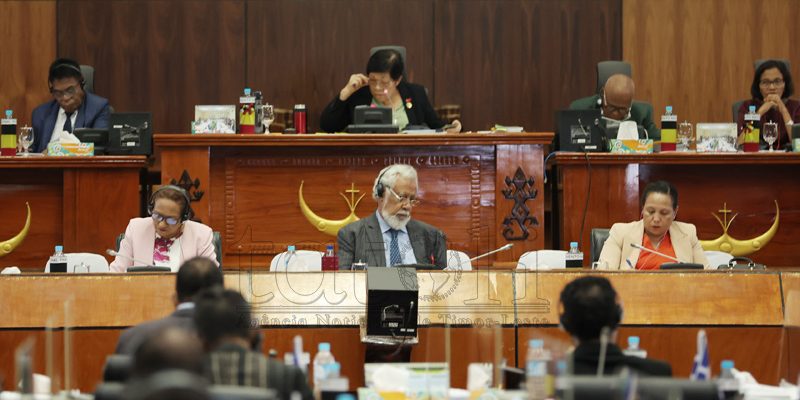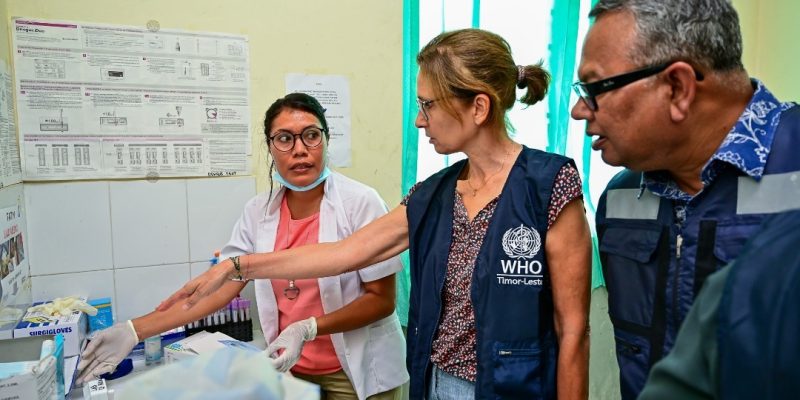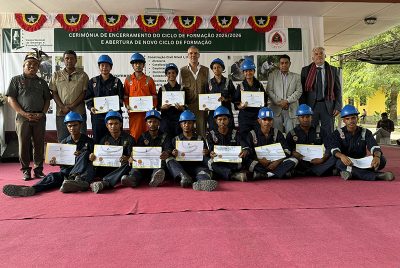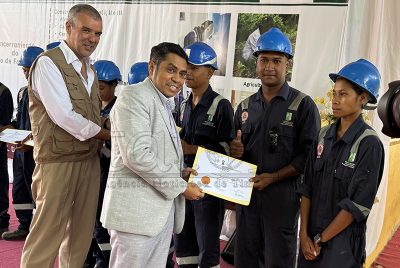DILI, 20 November 2025 (TATOLI) – The National Employment and Vocational Training Centre (CNEFP) in Tíbar certified 251 trainees on Thursday after they completed professional courses across multiple fields.
The graduates completed programs in General Construction (levels I and II), Agriculture (levels I and II), Livestock (level I), Masonry (level III), Electricity (level III), Welding (level III), Plumbing (level III), Maritime Safety for Fishermen, and Community and Cultural Tourism (level III). The tourism course was supported by the European Union (EU) and Portugal through Camões – Institute for Cooperation and Language.
The ceremony also marked the launch of new training programs for 2026. CNEFP opened registration for courses in General Construction, Agriculture, Hospitality, Masonry, Plumbing, and Electricity.
Speaking at the event, CNEFP Director José Barreto thanked the Government and line ministries for their support and noted that Livestock and Community and Cultural Tourism were introduced this year as new strategic priorities.
The EU Chargé d’Affaires in Timor-Leste, Christoph Sorg, congratulated the graduates and emphasized the importance of vocational training for the country’s economic and cultural development.
“Tourism is a powerful tool for economic growth and for preserving cultural heritage. Community and cultural tourism creates jobs and entrepreneurship opportunities,” he said.
Sorg also revealed that six graduates from the Community and Cultural Tourism course have already secured employment, demonstrating “the direct impact of the program.” He added that the EU will continue supporting the sector through the second phase of the Pro Cultura project, scheduled to begin next year.
Jorge Martins, General Coordinator of the Office of the Coordinating Ministry for Economic Affairs, highlighted the strategic role of vocational training in strengthening human resources. He warned of the challenges Timor-Leste will face as it prepares for full integration into the Association of Southeast Asian Nations (ASEAN).
“We will face major challenges in an increasingly competitive regional market. Without a workforce equipped with the right vocational skills, we cannot move forward,” he stated.
Among the graduates, 123 completed General Construction (63 at level I and 60 at level II), 40 completed Agriculture (20 at level I and 20 at level II), nine completed Livestock, six completed Masonry (level III), nine completed Electricity (level III), nine completed Welding (level III), nine completed Plumbing (level III), 31 completed Maritime Safety for Fishermen, and 15 completed Community and Cultural Tourism (level III).
The event was attended by the Portuguese Ambassador to Timor-Leste, Duarte Alves, the National Director of the National Institute for Workforce Development, Isabel de Lima, the Secretary of State for Livestock, Valentino Varela, and representatives from development partners and the private sector.
Journalist: Camilio de Sousa
Editor: Filomeno Martins




